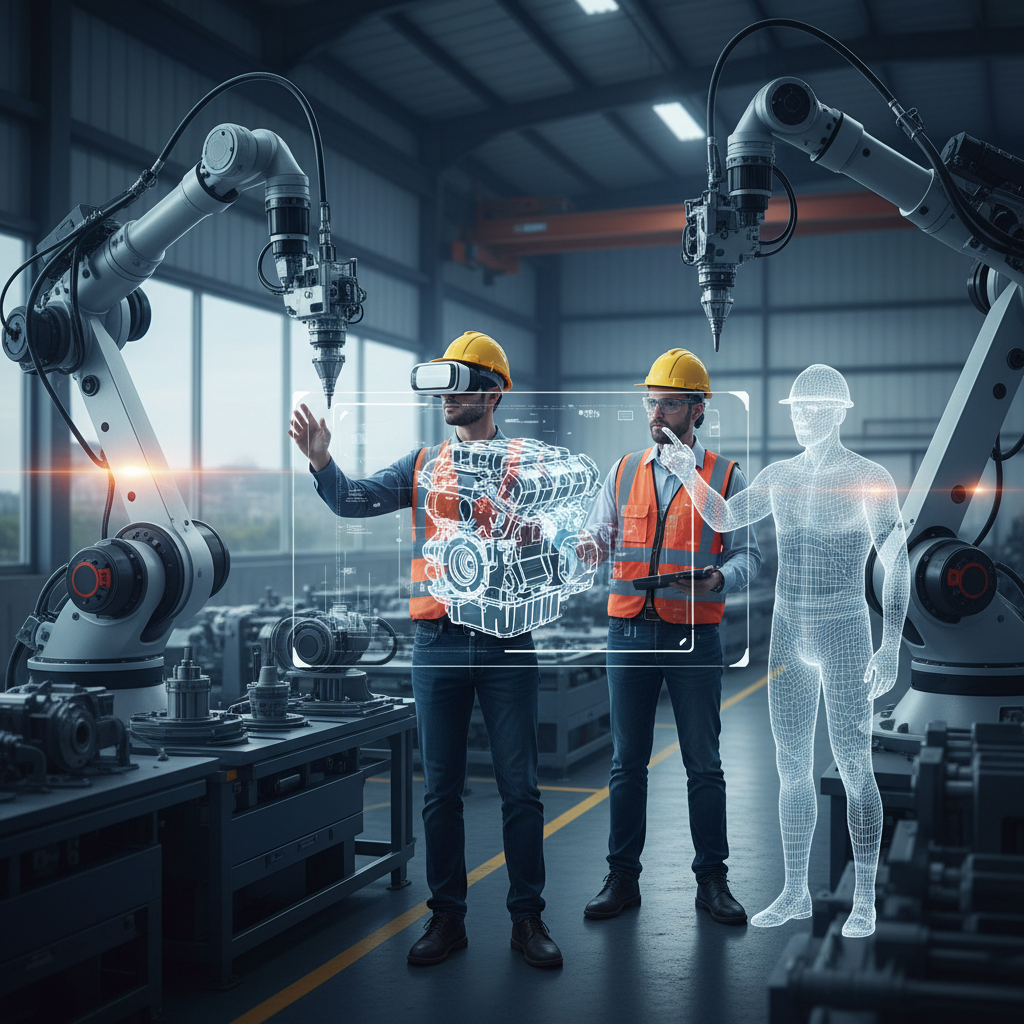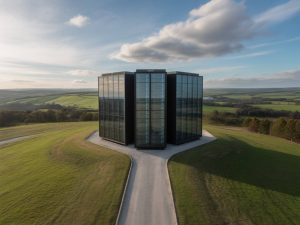A New Era for Industry: VR at the Heart of Manufacturing
Virtual reality (VR) is no longer just a novelty confined to gaming and entertainment. In recent years, it has steadily infiltrated the industrial sector, becoming a transformative force in modern manufacturing. With increasingly complex production requirements and shorter development cycles, manufacturers are turning to immersive technologies to improve efficiency, accuracy, and collaboration.
One company at the forefront of this revolution is Skyreal, a spatial engineering platform designed to help advanced industries solve complexity through XR (Extended Reality) solutions. By bridging the gap between CAD data and Unreal Engine, Skyreal offers manufacturers a unique pathway to unlock the true potential of immersive technologies in their workflows.
Let’s dive into how VR is fundamentally changing the landscape of manufacturing — from design and prototyping to training and stakeholder engagement.
Enhancing Product Design Through Immersive Prototyping
One of the most impactful applications of VR in manufacturing lies in the design phase. By visualizing complex CAD models in an immersive 3D environment, engineers and designers can interact with product prototypes at full scale, allowing for a more intuitive understanding of form and function. This accelerates the product development process and supports better decision-making at all levels of the design cycle.
Skyreal VR, the company’s flagship offering, turns traditional product design workflows into highly collaborative virtual experiences. Engineers no longer need to wait for physical prototypes to begin assessing ergonomics, mechanical interactions, or assembly feasibility. They can explore their designs in real time, make changes instantly, and verify functionality in a risk-free environment.
Such high-fidelity simulations are not only more cost-effective but also reduce errors downstream in the manufacturing chain. By identifying potential design flaws early, manufacturers can avoid expensive late-stage corrections and improve time-to-market for new products.
Facilitating Collaboration Across Teams and Geographies
In globalized manufacturing ecosystems, collaboration among distributed teams is essential yet often challenging. VR offers a unique solution by allowing stakeholders from different locations to meet inside the same virtual environment, interact with shared models, and conduct design reviews or workshops without needing to travel.
Through Skyreal VR's collaborative capabilities, engineers, marketing professionals, and even clients can engage in real-time discussions about 3D prototypes. The spatial context provided by the virtual environment ensures everyone is on the same page — literally. Annotations, measurements, and edits can be made live, creating a seamless feedback loop and slashing time wasted on email exchanges and versioning issues.
This level of shared understanding is crucial, especially in fields where miscommunication can lead to costly production errors or delays, such as in aerospace, automotive, and heavy machinery.
Revolutionizing Training Programs Through Immersive Learning
Integrating new equipment, processes, or personnel into an existing manufacturing line can be complex and risky. Traditional training methods often take substantial time and resources, and they can disrupt ongoing operations. VR-based training modules offer a safer, more scalable, and immersive way to train operators and engineers without interfering with live production.
Skyreal’s VR solution enables simulation of real-world manufacturing environments where employees can practice tasks, learn safety protocols, and understand machinery interactions in a virtual space. This reduces onboarding times and helps standardize knowledge across operators, while also minimizing human error in live production scenarios.
Moreover, by collecting data on user performance during these sessions, companies can identify knowledge gaps and tailor training programs accordingly, enhancing overall workforce competence.
From Digital Twin to Virtual Production Line
An emerging trend in the industrial use of VR is the adoption of “digital twins” — real-time digital replicas of physical systems. These virtual counterparts allow for real-time monitoring, diagnostics, and predictive maintenance planning. When embedded in VR environments, digital twins can also support virtual production line planning and remote monitoring of manufacturing operations.
Imagine being able to walk through a factory on the other side of the world and monitor machinery, staffing, and material flow — all through a VR headset. This is becoming a reality with tools like Skyreal VR, which can integrate CAD and operational data into immersive simulations. Such capabilities are proving invaluable for both long-term planning and fast-response troubleshooting.
Additionally, performance data from these simulations can be paired with artificial intelligence to optimize workflows, suggest design improvements, and simulate production scenarios for better capacity management.
Sustainability and Cost Reduction
Beyond efficiency gains, the use of VR in manufacturing also supports sustainability goals. Virtual prototyping drastically reduces material waste by minimizing the need for multiple physical mock-ups. It also enables remote collaboration, which can cut down on travel-related emissions, a growing concern for manufacturers aiming to reduce their environmental footprint.
These cost and sustainability benefits are particularly appealing for industries working on tight margins or those subjected to rigorous environmental regulations. Skyreal’s managed VR service ensures that these gains can be achieved securely, reliably, and at scale — helping companies align innovation with CSR goals.
Unlocking the Full Potential of Digital Transformation
As manufacturers continue to invest in digital transformation, integrating VR into their operations is a natural next step. It complements other Industry 4.0 technologies such as IoT, AI, and robotics, creating a holistic smart factory environment where feedback loops are tighter, decision-making is data-driven, and innovation is continuous.
According to recent industrial studies, VR adoption is expected to grow significantly over the next decade, with applications expanding beyond design and training into areas such as predictive maintenance, quality control, and complex assembly workflows.
For those seeking real-world examples and insights, Skyreal's blog features compelling stories and case studies that highlight the impact of virtual reality in manufacturing.
Why the Time is Now
The convergence of affordable VR hardware, high-performance simulation software, and increasing pressure to innovate has created the perfect storm for change. Manufacturers who take the leap into VR now are not only future-proofing their operations — they’re also gaining a decisive competitive advantage.
Skyreal makes this transition easier by offering a full-service VR solution tailored specifically to engineering and manufacturing needs. With secure, scalable deployment and seamless integration with existing CAD systems, Skyreal VR doesn't just enhance existing workflows — it redefines them.
Businesses that embrace immersive technologies today are setting the stage for a more agile, resilient, and innovative future. From faster product development to smarter training and more connected production lines, VR is no longer optional — it’s essential.
The Road Ahead
The transformation powered by VR is still in its early stages, but its trajectory is clear. As industries evolve to meet the challenges of increasingly complex products and volatile markets, immersive technologies will become indispensable tools for success.
With a proven solution like Skyreal VR, companies have a ready-made partner to help harness the full potential of extended reality. By embracing VR today, manufacturers are not merely keeping up with the times — they are shaping the factories of tomorrow.






More Stories
Vehicle-to-Grid Technology: How Electric Cars Can Stabilize Tomorrow’s Power Grids
L’impact environnemental caché de l’intelligence artificielle : vers une IA plus sobre en énergie
L’essor des communautés énergétiques locales : vers une nouvelle gouvernance citoyenne de l’énergie